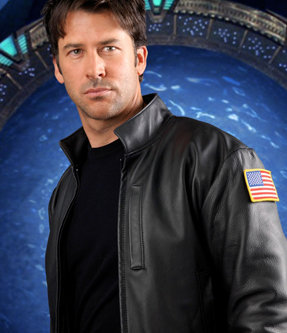Posting on culture is fun because there is so much good in it, whether that comes in the form of a great sense of humour, expertise in the areas of creating art or narrative, or by demonstrating careful thought on a particular subject and encouraging debate. This is partly why I enjoy analysing stuff! Can I identify where the excellence is in the TV show, film, conversation, soundtrack, article or book? Can I share it, emulate it, take joy in it, be thankful for it? Let me pinpoint it: Where is the goodness? Let me at it!
On the other hand, there is much that could influence us badly - many ideas which I ought to beware of, whether these are present only in underlying assumptions about life and God, or in more coherent ideas that suggest that laws and ways of living God has intended for my good are unimportant or "not for me" (or for society in general). I have been reminded lately that not the least danger in all this is the way I can disobey the apostle Peter's directions to use the time I have wisely - it's far easier to absorb culture uncritically than to give my whole being to God in worship, even the time I spend reading or watching something on TV, and by making sure I have organised my time so I am faithful in prayer (thanks be to God for a great sermon on 1 Peter 4:7-11 for jolting me to this stinging realisation).
Finally, a faithful response to God when considering culture is to be totally against evil, as He is; this means being careful to seek joy in the good and pursuing a greater and greater rejection of and distaste of evil, when we see it. Even mockery of evil can be instructive to our souls - and to friends - pointing out the hollow promises which some of our culture offers to us. Where is evil? May I stand against it - by the power of God. Most of all may it not go unnoticed and meet my approval!
With all this in mind, let me give you a slice of my own thoughts on my own reading "for fun" in the last few months.

Diving into Bill Bryson's
Notes from a Small Country at work has been great to help me see the funny side of things, making me laugh out loud on numerous occasions, and it's been a good light read, taking my mind off the problems of the various customers I chat to (I work in a call centre for a well-known department store, more out of necessity than choice!) I enjoyed the way Bryson has picked out the quirks of British life, discussing our attitude to the countryside and history, our patience and manners, how we put up with bad hotel service and endless amounts of rules, and our obsessions with the weather and giving the best directions. Certain eccentric Brits turn up as well, such as a rich hermit who built an underground complex (complete with ballroom) beneath his strangely-furnished mansion, which was found, after his death, to contain a room filled with boxes of wigs, and others painted entirely in pink.
Bryson is also a nerd for trivia, giving us details and statistics that I would never have bothered to consider about some of our factory towns from around the 1900s. One of the recurring ideas of note in the book is an insistence that us Brits should look after our heritage and not underestimate the impact of solidly-built and well-designed town centres on the public face of a town. While commending good design and service that he comes across in his rambling farewell tour of the UK (this was back in 1988 or so), the former Times writer Bryson spends page after page poking fun at the ludicrous layouts or poor maintenance of dismal and ugly towns and British centres of culture, as well as making us chuckle at his misfortunes with various unhelpful hotel staff and in the way he records the prices he wouldn't pay to enter National Heritage sites.
In fact here's the rub. The book had the effect on me of making me notice the things I am not satisfied with. I guess there are good aspects to always wanting things to be of a better standard, but I found myself noticing even more how petty some of the customers requests I was getting seemed to be. Yes, I throw my hands up and say that was my own critical spirit (need to remind myself of the rather shocking verse that is Romans 2:1), but perhaps fuelled a little by Bryson (?) Let's not underestimate the impact of words.
Finally, Bryson's interesting idea to make all heritage sites, cultural landmarks and cathedrals free to explore probably isn't realistic - something makes me think that actually in this life we can't have things for free (more's the pity). No matter how admirable it is for us to focus our efforts on the upkeep of our hilly countryside and cultural landmarks, this side of heaven things are going to get broken and costly. And earning things by sweat and hard graft is necessary and right.

A second book to mention briefly (I always spend too many words dealing with one subject!) is the frankly brilliant
The Big Over Easy by Jasper Fforde. If you know me, I've probably already recommended this one to you. Fforde is great at imagining for us new and bizarre scenarios in a pacey read that is stuffed full of clever puns and literary jokes. Brilliantly funny, while still having a proper mystery to unravel. What made this book, the first in Fforde's second ongoing series, particularly fun for me was the fact that he takes fairly mundane real-life locales from my university town, Reading, and then puts in violent murders of his own bizarre interpretations of fairy-tale and nursery rhyme characters. Local narcoleptic Willie Winkie is discovered face-down dead in Palmer Park, Humpty Dumpty's notoriously seedy life has ended in pieces, and the Gingerbread Man is thankfully incarcerated in a local asylum (no one could face those gnashing iced lips and blackest gum-drop eyes alone). I especially like how the detectives are obsessed with becoming the next Sherlock, and having that "Eureka" moment, and Jack Spratt's sensitivity about giants. The sequel is, so far, just as amusing. I challenge you to find a comedy writer as fun to read!

Finally, one book has recently brought home powerfully how much of a mess I am in before God, and yet what a firm basis I have for hope despite this, and is a book for serious personal study which I'd definitely recommend.
The Discipline of Grace by Jerry Bridges is currently informing my prayers, thoughts and dreams, and urging me into action in pursuing all the good things that Jesus would have me be: Righteous, full of thankfulness, dependent on God, disciplined, faithful - ultimately, being like Jesus. What an incredible thought: that this life (for Christians) is a journey towards being more like Him! And yet what a helpful reminder it has been to me that love of God involves total obedience and whole-hearted effort, and a recognition that I'm not good enough. Again, through friends, I have been reminded of God's first and only requirement for heaven: "a broken and contrite heart" before him, as we trust in his plan to save us, and not in our own efforts (Psalm 51:17, cf. Romans 3 and 4). And this book helpfully instructs us to remind ourselves of this gospel daily - and that, as Christians, we continue to depend on God to work through our efforts and bring real change and spiritual growth as only He can (1 Cor 3:7). And so it seems fitting to end this article with another lesson from the book: That we must come under God's living words, the Bible, to be transformed in our thinking by God as he works through his Spirit.
More thoughts on culture coming up - hopefully a mix of the light-hearted and serious, heady adventure and fun and grandiose ideology all tumbled up together.
 Someone who worked on Stargate Atlantis season two clearly shares my view that Rodney McKay is the most interesting and well-rounded character in the whole thing as the writers have designed two episodes, “Grace Under Pressure” and “Duet”, to focus almost solely on his state of mind and ability to work with others – and this makes for some excellent television. We know how, through the course of the first season, he has become painfully aware of his weaknesses: arrogance and bad people skills – and we see how in these episodes he battles with his own arrogance in his mind, on one occasion trying to distract himself from going ahead with a plan that his ego insists would work, because part of him knows this is a desperate measure that will not work!
Someone who worked on Stargate Atlantis season two clearly shares my view that Rodney McKay is the most interesting and well-rounded character in the whole thing as the writers have designed two episodes, “Grace Under Pressure” and “Duet”, to focus almost solely on his state of mind and ability to work with others – and this makes for some excellent television. We know how, through the course of the first season, he has become painfully aware of his weaknesses: arrogance and bad people skills – and we see how in these episodes he battles with his own arrogance in his mind, on one occasion trying to distract himself from going ahead with a plan that his ego insists would work, because part of him knows this is a desperate measure that will not work!  Meanwhile my main gripe is that the heroic military leader John Sheppard has become almost utterly boring and predictable this series, and his lines more often are there just to state the obvious – this is a shame as he proved himself to be the Bruce Willis of Stargate during season one’s two-parter, “The Storm”. I’ve also noticed that civilian leader Weir is always given similar reactions when new problems face the base. And Ronon and Teyla are still pretty dull as well.
Meanwhile my main gripe is that the heroic military leader John Sheppard has become almost utterly boring and predictable this series, and his lines more often are there just to state the obvious – this is a shame as he proved himself to be the Bruce Willis of Stargate during season one’s two-parter, “The Storm”. I’ve also noticed that civilian leader Weir is always given similar reactions when new problems face the base. And Ronon and Teyla are still pretty dull as well. 




